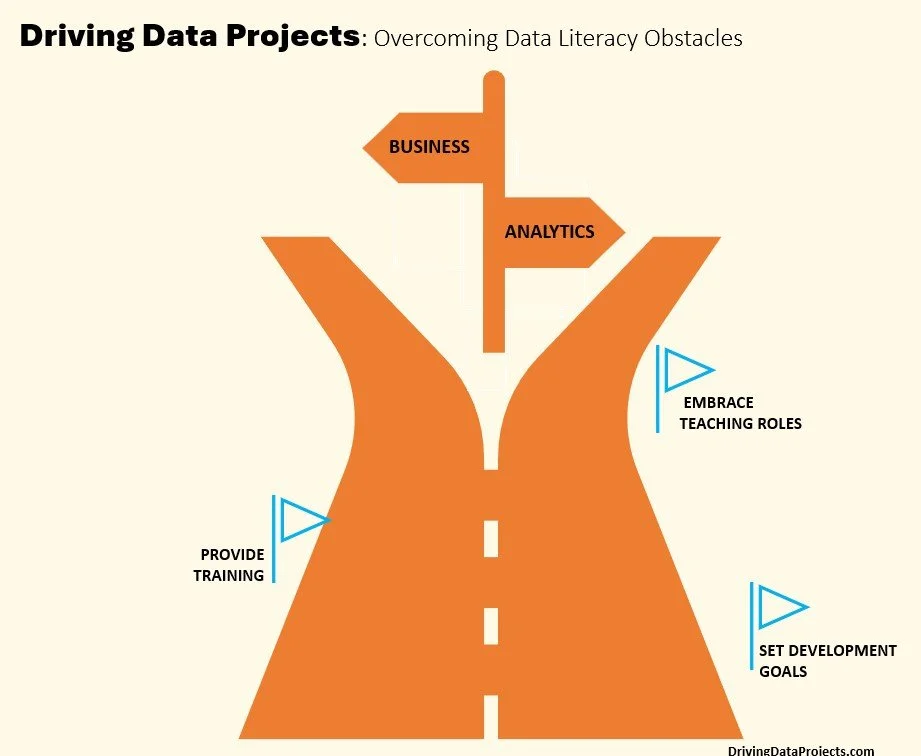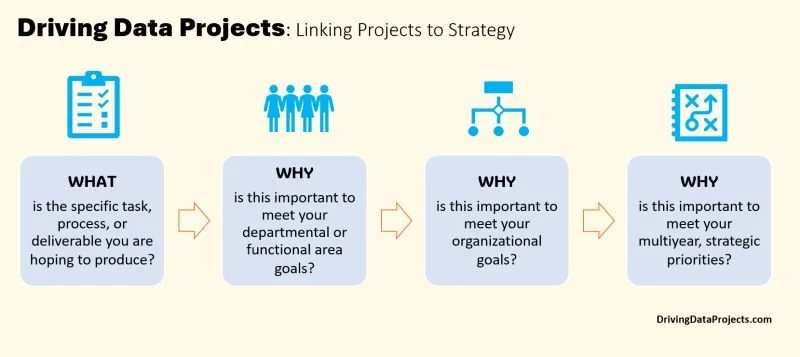Analytics Challenge: Lack of Data Literacy Among Stakeholders
The symbiotic relationship between technical analytics development and business utilization underscores the heightened emphasis on data literacy skills. Recognizing that literacy demands effort from technical and business domains, analysts must simplify and convey insights while business teams must effectively apply them.
All Technology Projects are Data Projects
One of the biggest ideas in Driving Data Projects (the book) is that "all technology projects are data projects." Yet data is still an afterthought in many organizations—even with AI on the horizon (or now, in many firms' backyards).
Author of Data Quality: The Field Guide, Tom Redman, popularized the idea that the most important moments in a piece of data's lifetime are the moment it is created and the moment it is used. These moments often occur outside of IT. The business consumes vast amounts of data, emphasizing the importance of business involvement in data quality management. Those who have provisioned and consumed data know from experience that bad data dies hard. It will get rid of you if you don't get rid of it.
4 Perspectives to drive effective data translation
When driving data projects, you will encounter business stakeholder challenges that often go unspoken. This is not always because people hold back but because they don't fully know how to vocalize their constraints.
If they can't directly address their requirement, chances are we can't either. To hear others' speech, we start by asking questions from different perspectives.
Data Projects: Tips and Challenges
As we continue to drive data projects, familiar challenges begin to present themselves. By observing, we can become better diagnosticians of systemic issues. Learn what to avoid and how to navigate them better.
Countdown: Book Excerpt Chapter 4
People who work in data management are particularly dedicated problem solvers. They are committed to the mission in a way that makes them want to make the initiative successful. Most examples featured in the book reflect what happens in a specific type of data project -- a team-based project with stakeholders recruited from across the organization, including outside partnerships.
Resistance mitigation strategies
Change management wouldn’t be so hard if it weren’t for…the people. Open issues or objections left unresolved today cost time down the road. Suppose work starts before these concerns are mitigated. Stakeholders might get frustrated or begin to hold back their participation. Work produced might have difficulty getting implemented. Buy-in realizes impact.
Linking projects to strategy
It can be challenging when stakeholders cannot translate business questions into technical requirements or do not provide enough context for data teams to do so. From there, the data team is often left to maintain the status of a series of ad hoc projects rather than connect these business questions to a larger more defined data strategy.







